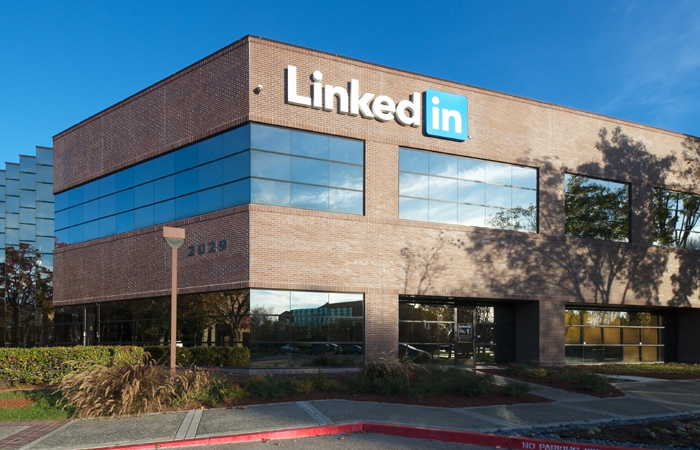While not officially recognized as the word of the year, artificial intelligence (AI) gained significant attention in 2023, particularly with the advent of OpenAI’s ChatGPT in late 2022. This sparked widespread discussions about the potential benefits and risks associated with AI, ranging from its role in saving humanity to concerns about job displacement for white-collar workers. The concept of “gen AI” seemed more about a generational shift than just generative bots, positioning us as the ones who would narrate the impact of the AI era to future generations.
It’s essential to acknowledge that AI has been part of our lives for decades, often operating in the background without our awareness. While advancements are occurring rapidly, there are inherent limitations. Some are practical, like the rise of the term “hallucinate” in 2023, while others raise more significant concerns, such as AI being likened to a black box with opaque decision-making processes.
Numerous corporate leaders have highlighted the transformative potential of generative AI in reshaping business operations, but the exact ways in which this transformation will unfold remain uncertain.


Sriram Thiagarajan, Chief Technology Officer of Ancestry
Sriram Thiagarajan, Chief Technology Officer at Ancestry, emphasized the transformative impact of generative AI, stating, “AI and machine learning aren’t new to Ancestry but generative AI has thrown open the possibilities.” He elaborated on the capabilities of these algorithms, noting, “These algorithms can interpret and understand the semantics of human language, and there are things you can do more effectively leveraging large-language models.”
Discussing Ancestry’s approach to innovation, Thiagarajan mentioned, “We are using computer vision to automate visualization of those records. We can read human language, human handwriting, in a couple of different languages, already.” He highlighted the practical applications, saying, “We can extract names, places, relationships between people and locations, using advanced machine learning. We’re leveraging the LLM to help with those efforts,” referring to the large-language model.
Addressing concerns, Thiagarajan stated, “Ancestry is concerned with hate, abuse, historical facts being misrepresented, and AI hallucination.” Despite the goal of automation, he acknowledged, “Right now, there are human reviews of the AI results.”
Highlighting a challenge in the field, Thiagarajan remarked, “LLMs themselves are evolving every week or every two weeks so you have to be constantly curious and can’t assume you learned one thing or know how something works.” This underlines the need for ongoing curiosity and adaptability in dealing with the evolving landscape of large-language models in AI.


Vladimir Lukic, managing director & senior partner; global leader, tech and digital advantage of Boston Consulting Group
Numerous AI tools crafted by companies might not enjoy a long shelf life, according to Vladimir Lukic, the global leader in tech and digital advantage, who shared insights. Lukic underscores the significance of companies actively experimenting and developing critical processes.
In the course of AI development, companies wrestle with questions about responsible technology use and potential downsides. Issues related to acquiring and refining the right data add to the complexity. Lukic describes this as a valuable exercise, stating, “It was a super helpful exercise to do because they build muscle.“
Lukic foresees the beneficial aspect of muscle memory developed through these endeavours. He predicts that certain AI tools considered innovative just months ago, will soon become standard features, estimating that “80% of the stuff that was built in the last six months [will become] obsolete because it will be a feature in software packages coming at us.“
However, Lukic acknowledges that this transition won’t be without challenges. He suggests that setbacks with AI could prompt companies to slow down their adoption. Additionally, companies observing AI errors or deviations from intended functionality might make adjustments to their deployed systems. Lukic envisions an upcoming wave of modifications focused on fine-tuning the deployment of AI, indicating an ongoing refinement process in the evolving landscape.


Salumeh “Sal” Companieh, Chief Digital and Information Officer of Cushman & Wakefield
AI adoption is imperative in the realm of “delivering insights” within commercial real estate, as stated by Salumeh “Sal” Companieh, Chief Digital and Information Officer. In this context, the commercial real estate giant, as described by Companieh, ensures that both real estate investors and tenants can utilize a “compilation of the finest market data,” incorporating factors like foot traffic, drive time, and weather to identify optimal spaces. Companieh underscores that the core of this process is AI technology.
The utilization of AI assists employees at Cushman in maximizing their time to effectively serve clients. This introduces an exciting prospect of incorporating transformative technology into a field that generally experiences gradual change.
Companieh notes that clients, including landlords and tenant companies, are rightfully seeking transparency regarding Cushman’s use of AI. Questions such as “Where is it? Where is it incorporated? Where will it be incorporated? How do we ensure their data safety? How do we ensure sound integration of datasets?” reflect this demand for openness.
The current landscape of AI and its adoption is reflective of the ongoing efforts of various companies, including Cushman & Wakefield. These endeavours encompass creating partnerships, scrutinizing commercial terms, strengthening cybersecurity teams, and recruiting and training talent.
Companieh underscores that the journey of AI adoption is highly personal for each organization, with an individualized approach tailored to the distinctive characteristics of each entity. She reiterates their commitment to authenticity in navigating this journey and doing what’s right for their organization.


Dan Shapero, Chief Operating Officer of LinkedIn
In 2022, LinkedIn decided to rewrite its roadmap to incorporate AI across a range of capabilities, Dan Shapero, chief operating officer, told BI. “We were lucky enough to see some of the next-gen AI models by being part of Microsoft in the middle of 2022,” he said.
The networking platform knew this would be a “time of massive experimentation to see where AI made the biggest difference” for both recruiters and job seekers. He said the company will use AI to help people write their profiles because people can find it awkward to describe themselves professionally. “It’s not always comfortable for people to write things about themselves,” he said.
The biggest request from users, Shapero said, is help finding a job. LinkedIn is seeing more questions about how people can use AI in the job hunt, how to describe themselves, and for advice on interviewing.
This led to LinkedIn’s AI-powered coaching chatbot and personalized writing suggestions for users. There are also new tools for recruiters, such as AI-assisted messages and AI-assisted job descriptions. Company figures show that when recruiters personalize messages via LinkedIn, they see up to a 40% increase in acceptance rates.
Shapero thinks AI will lead to ideas that might have once seemed impossible but will also require caution: “We need to embrace these capabilities responsibly and ethically and with equity in mind,” he said.


Juergen Mueller, Chief Technology Officer of SAP
SAP aims to provide AI LLMs with the “means to access the know-how,” shared Juergen Mueller, the chief technology officer, with BI. “We develop a method that you can combine the strength of a large language model with all the real-time, company-specific information that you need,” he said.
The German company, specializing in cloud-based subscription services for financial reporting, inventory tracking, and human resources applications, scrutinizes various company processes, including financials, procurements, HR, customer relations, and the supply chain.
With nearly nine years of experience in the machine-learning AI space, SAP has addressed questions regarding working with data, protecting data, using data ethically, tools needed by data scientists, and “how can we rethink and upgrade to generative AI.”
In 2023, the R&D SAP invested in business AI proved successful, according to Mueller. “Over 25,000 SAP Cloud customers using at least one of our 130 AI scenarios.”
Despite progress, concerns persist. “I think the risk is not that there’s new technology. The risk is that we don’t lean in and don’t invest the extra time, and extra hours. Because it needs a little bit of time; it is a little complex,” he said. “Everyone needs to lean in, learn. That, I think, is the largest risk. Then you have divergence in society.”


Chris Bedi, Chief Digital Information Officer of ServiceNow
ServiceNow aims to transition into an “AI-first” company, as stated by Chris Bedi, chief digital information officer, to BI. “We know we’re in the early innings, especially with gen AI, but we are pushing on it hard.”
As a provider of a cloud-based platform for automating IT workflows, ServiceNow utilizes generative AI search for both employees and customers. Generative AI facilitates quicker task completion, such as reading and interpreting information. “Literally you run a process in a couple of hours. It’s additive,” Bedi noted.
Acknowledging the importance of understanding and integrating AI, the company has undertaken training for its 22,000 employees. ServiceNow recently organized an AI learning day featuring panels to demystify the technology, according to Bedi. Bedi emphasized that teams in information technology, human resources, and customer support don’t perceive gen AI as a threat.
Approximately 64% believe it’s enhancing productivity, he mentioned. Considering scenarios where AI plays a more substantial role in someone’s job, Bedi addressed the question of “How do we fill in the gaps of time to do more meaningful work than you were previously able to do?” For Bedi, the value of gen AI is striking, as he expressed, “The analogy of asking employees to work right now without gen AI is like asking them to use a typewriter when there’s a word processor available.”


Sowmyanarayan Sampath, CEO of Verizon Consumer Group
Sowmyanarayan Sampath assumed the role of Verizon Consumer Group’s CEO in March, emphasizing the critical role of the internet in today’s world. Sampath highlighted that internet access is a fundamental bridge for various activities, from playing video games to remote work via Zoom.
Recognizing the significance of internet connectivity, Sampath stressed that people are willing to pay more for reliable service. In response, he envisions leveraging AI at scale to simplify and streamline operations. Reflecting on the complexity of existing systems, Sampath expressed the need for a shift towards simplicity.
The plan involves implementing AI extensively, enabling Verizon to grasp customer sentiment, interpret cues, and provide optimal solutions. Sampath’s ambitious goal for 2024 is to position Verizon as “the world’s best AI-applied company,” integrating AI into daily operations, internal workflows, and customer interactions.
Contrary to mere pilot projects, Sampath aims for comprehensive and responsible AI use, emphasizing alignment with ethical standards. He asserted, “I don’t want the algo doing things I wouldn’t do myself.”








